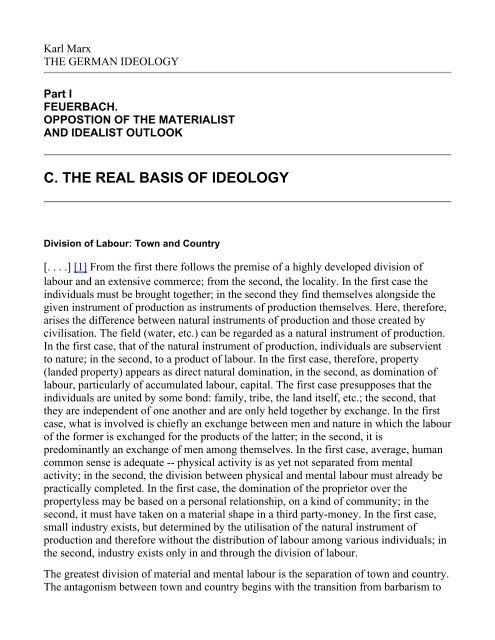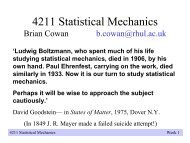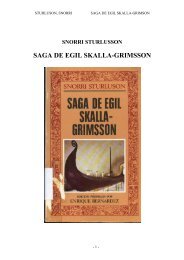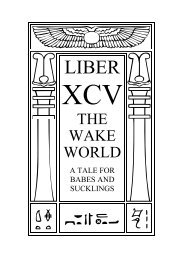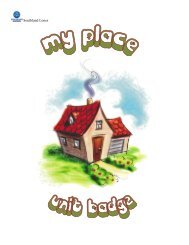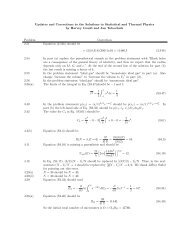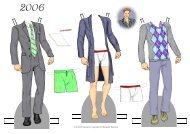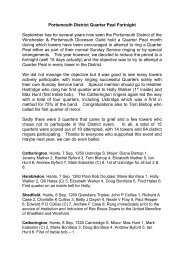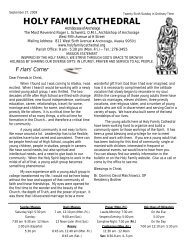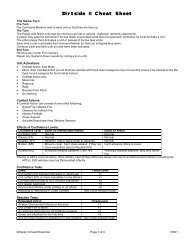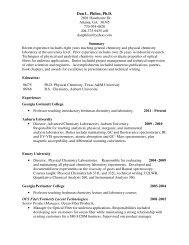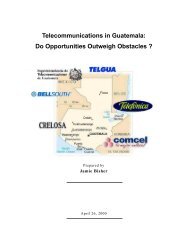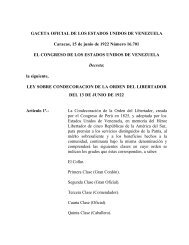A Critique of The German Ideology
A Critique of The German Ideology
A Critique of The German Ideology
You also want an ePaper? Increase the reach of your titles
YUMPU automatically turns print PDFs into web optimized ePapers that Google loves.
Karl Marx<br />
THE GERMAN IDEOLOGY<br />
Part I<br />
FEUERBACH.<br />
OPPOSTION OF THE MATERIALIST<br />
AND IDEALIST OUTLOOK<br />
C. THE REAL BASIS OF IDEOLOGY<br />
Division <strong>of</strong> Labour: Town and Country<br />
[. . . .] [1] From the first there follows the premise <strong>of</strong> a highly developed division <strong>of</strong><br />
labour and an extensive commerce; from the second, the locality. In the first case the<br />
individuals must be brought together; in the second they find themselves alongside the<br />
given instrument <strong>of</strong> production as instruments <strong>of</strong> production themselves. Here, therefore,<br />
arises the difference between natural instruments <strong>of</strong> production and those created by<br />
civilisation. <strong>The</strong> field (water, etc.) can be regarded as a natural instrument <strong>of</strong> production.<br />
In the first case, that <strong>of</strong> the natural instrument <strong>of</strong> production, individuals are subservient<br />
to nature; in the second, to a product <strong>of</strong> labour. In the first case, therefore, property<br />
(landed property) appears as direct natural domination, in the second, as domination <strong>of</strong><br />
labour, particularly <strong>of</strong> accumulated labour, capital. <strong>The</strong> first case presupposes that the<br />
individuals are united by some bond: family, tribe, the land itself, etc.; the second, that<br />
they are independent <strong>of</strong> one another and are only held together by exchange. In the first<br />
case, what is involved is chiefly an exchange between men and nature in which the labour<br />
<strong>of</strong> the former is exchanged for the products <strong>of</strong> the latter; in the second, it is<br />
predominantly an exchange <strong>of</strong> men among themselves. In the first case, average, human<br />
common sense is adequate -- physical activity is as yet not separated from mental<br />
activity; in the second, the division between physical and mental labour must already be<br />
practically completed. In the first case, the domination <strong>of</strong> the proprietor over the<br />
propertyless may be based on a personal relationship, on a kind <strong>of</strong> community; in the<br />
second, it must have taken on a material shape in a third party-money. In the first case,<br />
small industry exists, but determined by the utilisation <strong>of</strong> the natural instrument <strong>of</strong><br />
production and therefore without the distribution <strong>of</strong> labour among various individuals; in<br />
the second, industry exists only in and through the division <strong>of</strong> labour.<br />
<strong>The</strong> greatest division <strong>of</strong> material and mental labour is the separation <strong>of</strong> town and country.<br />
<strong>The</strong> antagonism between town and country begins with the transition from barbarism to


